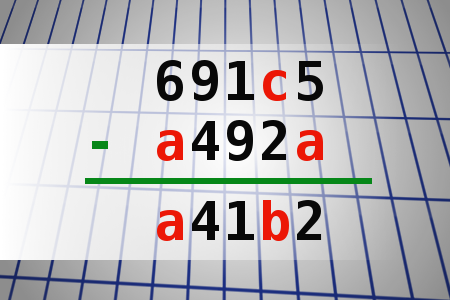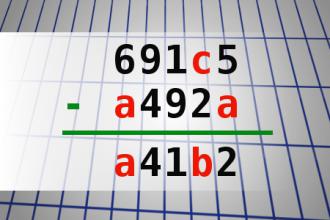Find number abc
If 691c5 - a492a = a41b2 find number abc. Multiple solutions may exist.Correct answers: 26
The first user who solved this task is Nílton Corrêa de Sousa.
#brainteasers #math

An old Chinese couple was cele...
An old Chinese couple was celebrating their 40th wedding anniversary. At bed time the old lady looked over at her husband of 4 decades and said, "For our anniversary I want you to pick any sexual pleasure you desire and I will do it".
The old man thought for a minute and said, "Well, I've always wanted to try the 69".
The old Chinese woman stared at her husband with a confused look on her face and said, "You want the beef with rice or chips?"
The old man thought for a minute and said, "Well, I've always wanted to try the 69".
The old Chinese woman stared at her husband with a confused look on her face and said, "You want the beef with rice or chips?"

